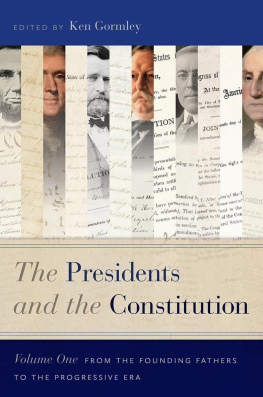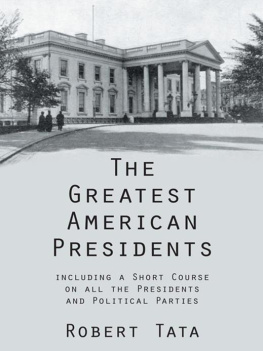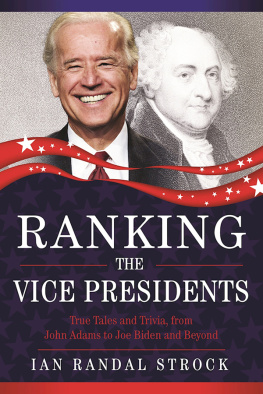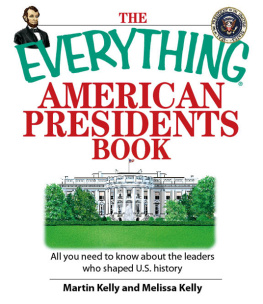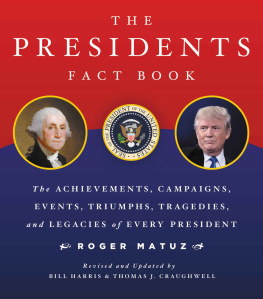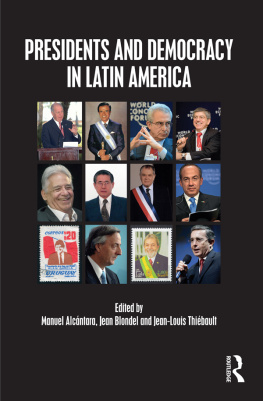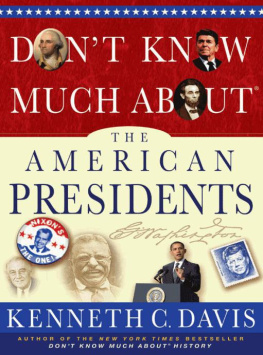17891797

Born: February 22, 1732
Died: December 14, 1799
Birthplace: Popes Creek, VA
V.P.: John Adams
First Lady: Martha Dandridge Custis
The only president inaugurated in two cities: New York and Philadelphia
Wore false teeth made from exotic materials
Slavery
By the 1790s, there were almost 3/4 of a million slaves in the United States. Although the northern states all outlawed slavery between 1777 and 1804, the South became increasingly dependent on slave labor. This dependence increased in 1793 when Eli Whitney invented the cotton gin. This machine simplified the cotton-picking process and saved a tremendous amount of work causing southern cotton production to soar.
1744
17561763
The British victory in The Seven Years War decides the future of the North American Continent.
March 5, 1770
At the Boston Massacre, British soldiers kill five Americans.
1773
The Boston Tea Party ignites the American Revolution.
July 4, 1776
The Declaration of Independence is signed.
1783
The peace treaty with England is signed in Paris, ending The War for Independence.
K nown as the Father of his Country, George Washington fully understood the significance of his presidency. While in office, he set the precedents that shaped the job of president. His domestic policies strengthened the national government, and his response to international events helped determine American foreign policy for more than one hundred years.
Washington was born into a well-to-do Virginia planter family. Although he had little formal schooling, he learned the morals, manners, and knowledge necessary for an eighteenth-century Virginia gentleman. Spending much of his time outdoors, he became an excellent horseman and an expert surveyor. Commissioned a lieutenant colonel at the age of 22, Washington fought in the French and Indian War (also known as the Seven Years War). His exploits and adventures during the conflict between France and Great Britain showed that he had a gift for leadership and made him famous throughout the colonies.
From 1759 until 1775, Washington managed the lands of his Mount Vernon plantation and served in the Virginia House of Burgesses. Devoted to the planter life, he played only a minor role in the initial stages of the American Revolution. Elected to lead the new Continental Army because of his past military experience, Washington held together his ill-trained and poorly supplied troops for six years. Washingtons strategy was to harass the more powerful British and avoid major battles. The Continental Army did win some small victories that boosted colonial morale and prevented the Americans collapse. On Christmas night, 1776, for example, Washington crossed the Delaware River and defeated a surprised British garrison at Trenton, New Jersey. For the next two years, the war swept back and forth across New Jersey and Pennsylvania. As the war in the northern states turned into a deadly stalemate that neither side was able to win, the South became the primary battleground during the final years of fighting. In October 1780, Washington sent Nathaniel Greene to South Carolina. Dividing his army into small, mobile bands, Greene employed what today would be called guerrilla tactics, striking by surprise and then disappearing into the interior. In time, the tide began to turn. Finally, in October 1781, with the aid of French allies, Washington forced the British to surrender at Yorktown, Virginia. After the war, Washington longed to retire and enjoy the peaceful life of his Mount Vernon fields. The new nation he helped create needed him, however. Probably no other man could have succeeded in welding the states into a lasting union, so he was the unanimous choice for president in 1789.
During his first months in office, Washington enjoyed almost universal support. Within a year, however, there was serious disagreement within Washingtons cabinet. Secretary of the Treasury Alexander Hamilton, who had played an important role in securing ratification of the Constitution, favored a strong central government with broad powers. Secretary of State Thomas Jefferson, author of the Declaration of Independence, feared that a strong government might abuse its power and oppress the people. Washington usually took Hamiltons side in these disagreements. The Hamilton vs. Jefferson debate about how much power the Constitution gave the federal government has continued to this day.
Native Americans and Blacks in the Revolution
The Revolutionary War involved more than the British and the colonists. It drew in countless Native Americans and slaves as well. Both sides actively sought Indian alliances. Recognizing their immense stake in the outcome, Native American tribes like those in the Iroquois league abandoned neutrality and joined the struggle against the colonists. For blacks, the decision about which side to support was just as difficult. While some blacks sought their freedom by joining the British, nearly 5,000 black patriots, such as Crispus Attucks, bravely fought alongside white colonists.

Women in Revolutionary America
Although the American Revolution was a step forward for political democracy, colonial and revolutionary-era politics did not include women. Although most women did not press for political equality, the more male leaders talked about Englands oppressive power, the more American women began to rethink their own domestic situations. The War for Independence encouraged women to write and speak about public events as they raised money for the army and taught their children about the new responsibilities of American citizenship. As a result, women developed new and important connections with public life during these years.
1797
May 25, 1787
The Constitutional Convention in Philadelphia creates the federal government.
1791
The U.S. capital moves from New York City to a site on the Potomac River between Maryland and Virginia.
1791
The Bill of Rights is ratified.
1792
In England, Mary Wollstonecraft publishes A Vindication of the Rights of Women, which advances the cause of womens rights.
Despite the split in his cabinet, Washington was unanimously re-elected in 1792. There was some public criticism of his policies, however. The farmers of western Pennsylvania, for example, protested a government tax on whiskey. Alarmed that the protests might spread, Washington led a federal army against the protesters and quickly restored order. Although the Whiskey Rebellion never really threatened the government, Washingtons actions proved that the federal government had the power to enforce its laws.
As president, Washington was much less willing to use military force abroad. When the French Revolution led to a war between France and England in 1793, the president faced a number of diplomatic and domestic problems. The war also divided Washingtons cabinet again. This time, Washington refused the advice of both the pro-British Hamilton and the pro-French Jefferson. Instead, knowing the new nation was not prepared to fight, he insisted on neutrality. By the end of his second term, Washington had wearied of politics. To his disappointment, two opposing political parties had developed, centering on the philosophies of Hamilton and Jefferson. Although still very popular, Washington declined a third term, setting an important precedent. In his farewell address, he warned his countrymen about the dangers of political parties and again stressed the importance of neutrality in European affairs.


